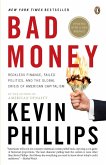For ten boom-powered years at the turn of the twenty-first century, some of America's most prominent law and accounting firms created and marketed products that enabled the very rich—including newly minted dot-com millionaires—to avoid paying their fair share of taxes by claiming benefits not recognized by law. These abusive domestic tax shelters bore such exotic names as BOSS, BLIPS, and COBRA and were developed by such prestigious firms as KPMG and Ernst & Young. They brought in hundreds of millions of dollars in fees from clients and bilked the U.S. Treasury of billions in revenues before the IRS and Justice Department stepped in with civil penalties and criminal prosecutions. In Confidence Games, Tanina Rostain and Milton Regan describe the rise and fall of the tax shelter industry during this period, offering a riveting account of the most serious episode of professional misconduct in the history of the American bar.
Rostain and Regan describe a beleaguered IRS preoccupied by attacks from antitax and antigovernment politicians; heightened competition for professional services; the relaxation of tax practitioner norms against aggressive advice; and the creation of complex financial instruments that made abusive shelters harder to detect. By 2004, the tax shelter boom was over, leaving failed firms, disgraced professionals, and prison sentences in its wake. Rostain and Regan's cautionary tale remains highly relevant today, as lawyers and accountants continue to face intense competitive pressure and regulators still struggle to keep pace with accelerating financial risk and innovation.
Dieser Download kann aus rechtlichen Gründen nur mit Rechnungsadresse in A, B, BG, CY, CZ, D, DK, EW, E, FIN, F, GR, HR, H, IRL, I, LT, L, LR, M, NL, PL, P, R, S, SLO, SK ausgeliefert werden.
Hinweis: Dieser Artikel kann nur an eine deutsche Lieferadresse ausgeliefert werden.









